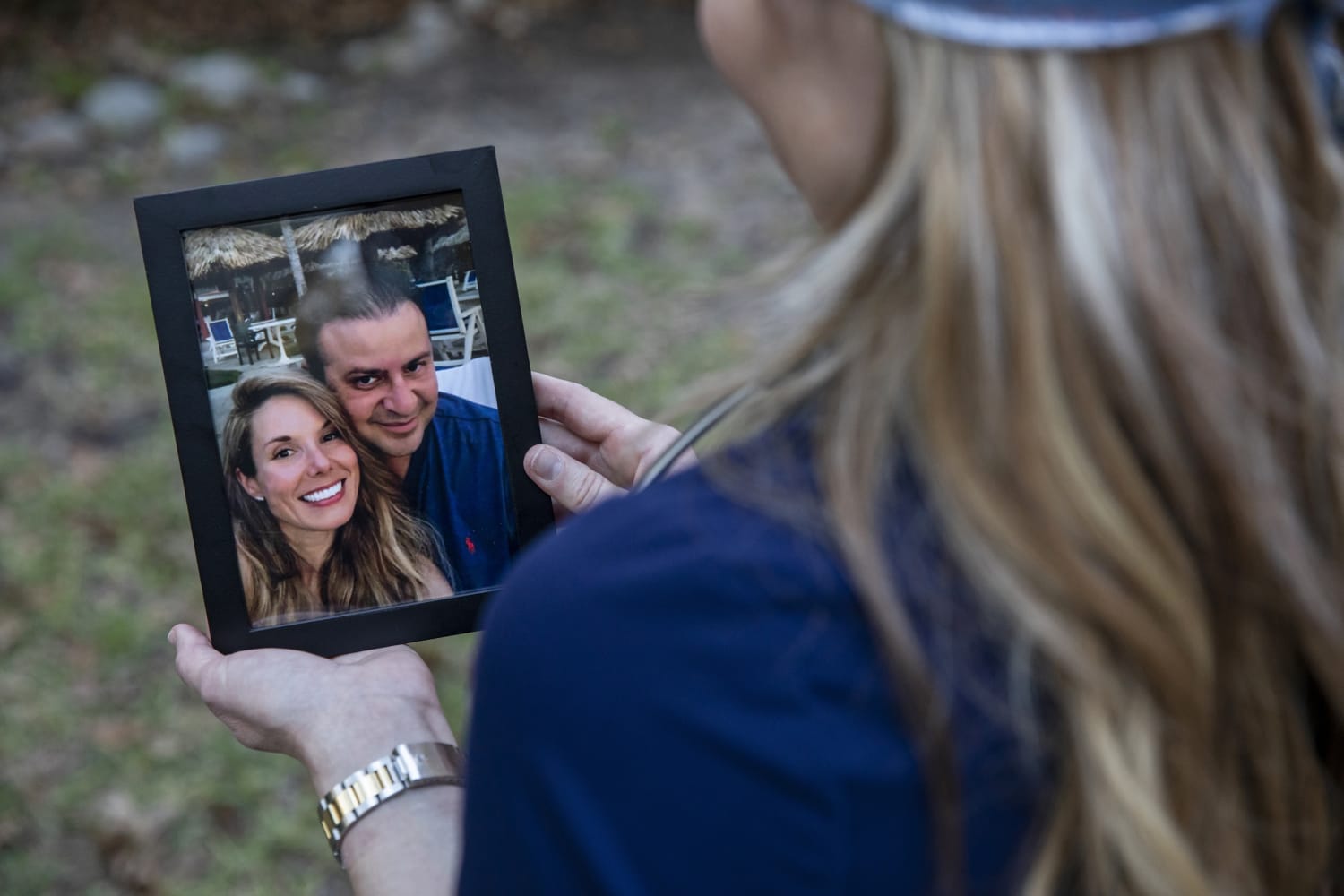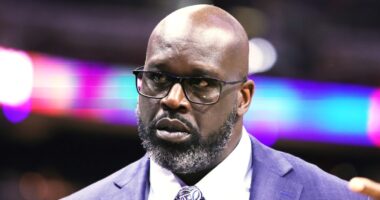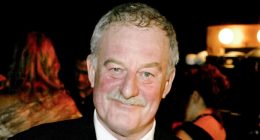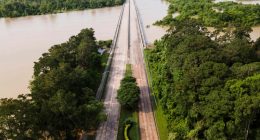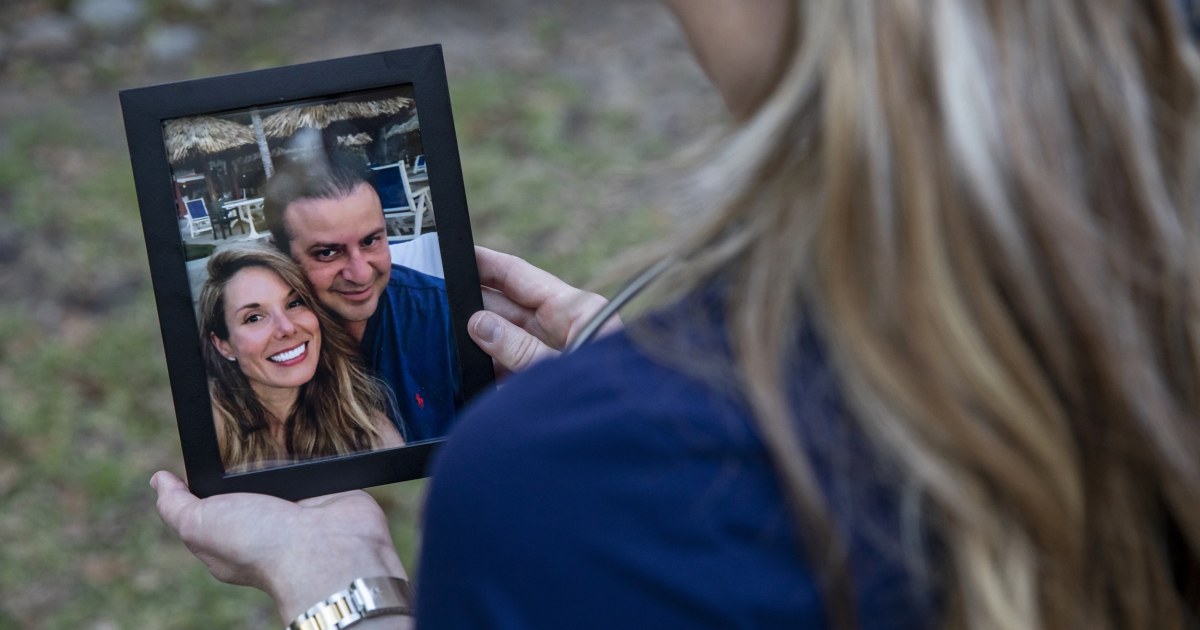
HOUSTON — Paige King knew something was wrong the moment she pulled up to her house on the evening of Oct. 26.
Her partner, Dr. Carlos Araujo-Preza, was sitting on the hood of his car in their driveway. He was wearing scrubs and a respirator — the one he’d worn in the intensive care unit each day while treating coronavirus patients — and he had a duffel bag packed at his feet.
King got out of her car and asked what he was doing.
“I have Covid,” he said.
For a moment, King hoped he was messing with her. In their seven years together, she’d gotten used to his playful sense of humor. But this wasn’t a joke.
For more on this story, watch NBC’s “Nightly News with Lester Holt” tonight at 6:30 p.m. ET/5:30 p.m. CT.
Araujo-Preza told King he would quarantine at his lake house to protect her and his 78-year-old mother, who lived with them. But he told King not to worry.
As a critical care pulmonologist, he’d spent months treating hundreds of critically ill Covid-19 patients at HCA Houston Healthcare in Tomball. The sickest of the sick. The vast majority of those in need of hospital care were elderly or suffered from underlying health problems.
Araujo-Preza was 51 and fit, not at high risk of serious coronavirus complications, he assured her. King, a nurse practitioner at his practice, knew he was right.
She remembers teasing him as he loaded his bag into the trunk. Araujo-Preza loved “Star Wars” and sometimes jokingly referred to himself as a Jedi.
“I was like, ‘If I don’t get Covid after sleeping in bed with you, then I’m the real Jedi Master,'” King said.
They both laughed and said “I love you” before hugging briefly. Then he drove away.
“Neither of us was afraid,” King said. “We both thought he’d be fine.”
But as the disease ran its course, fear would come. Then desperation. And finally, unspeakable sadness.
A little more than a month after their playful exchange in the driveway, King would find herself rifling through the closet of her partner — the “love of my life,” she called him — looking for his favorite suit.
Araujo-Preza was a handsome man, and King wanted him to look his best at his funeral.
‘I was born for this’
As the critical care medical director at HCA Tomball, a 350-bed hospital north of Houston, Araujo-Preza was thrust to the front line of the Covid-19 crisis this spring.
His team was stretched so thin early in the pandemic that Araujo-Preza started staying at the hospital overnight in April. For weeks, he slept in a room near the ICU. That way when patients deteriorated, he’d be only steps away when it was time to intubate them.
For most of April and May, he and King, 39, saw each other only in passing. For nearly eight years, ever since King went to work for him, the two had seen each other almost every day, especially after they started dating and moved in together. But now he was staying at the hospital night and day, stopping home only for a quick shower and a change of clothes.
Full coverage of the coronavirus outbreak
His 22-year-old daughter, Andrea Araujo-Preza, worked as an assistant at the clinic where her father cared for patients in need of outpatient breathing treatments, but she barely saw him those months. She and her brother, Carlos Araujo-Preza Jr., were worried about him.
“But he was so committed to his patients,” she said. “His work was like his calling.”
King remembers asking Araujo-Preza one morning, when he stopped home for a shower before heading back to work: “Baby, aren’t you afraid of getting this?”
Araujo-Preza shook his head.
“I’m not afraid,” King recalls him saying. “I was born for this.”
King didn’t argue. She knew he was taking every precaution to avoid contracting the virus. And it would have been selfish to ask him to stop treating patients in such desperate need of his care.
Araujo-Preza had moved to the U.S. from El Salvador in 1994 with a dream of becoming a doctor. He wanted to help people heal, he told loved ones. After completing his medical education in New York, he moved in 2001 to Houston, where he treated thousands of patients over two decades.
“He truly was born to be a doctor,” King said. “He was born to help people. He was born to make people feel not afraid during the scariest time of their life.”
That’s how Leonor Quiroz felt when she met Araujo-Preza in May. Quiroz, 47, was having a hard time breathing and had just tested positive for Covid-19. She was terrified.
Then Araujo-Preza came to her bedside.
“He very calmly explained what needed to be done,” Quiroz said. “He was honest with me. He told me: ‘You have pneumonia. You have a bad case. But we’re going to get it under control, and you’re going to be OK.'”
The doctor’s face was covered behind a respirator and a plastic face shield. But she could tell from his eyes that he was being genuine.
“He had such kind eyes,” Quiroz said. “I’ll never forget them.”
After a couple of weeks under his care, receiving steroids, supplemental oxygen and fluids, she made a full recovery.
Araujo-Preza tried to do the same for Quiroz’s husband, Valentin, after he tested positive days after her. But Valentin, 52, wasn’t as fortunate as his wife. After two weeks in Araujo-Preza’s ICU, he died.
In the hectic aftermath, between planning a funeral and trying to come up with money to pay their medical bills, Leonor never got a chance to tell the doctor thank you.
“I’m alive today because he was willing to risk his life to treat me,” she said.
‘It finally caught up with him’
The first sign of trouble came in mid-October, just as Covid-19 cases began to surge again in Texas. It was a Monday, and Araujo-Preza was complaining about body aches.
He must have pushed it too hard while working on his boat the day before, he told King.
“I was like, ‘Dude, you did not do that much exercise,'” King said.
Araujo-Preza didn’t feel better in the days that followed. A week later, after spiking a slight fever, he tested positive for Covid-19.
“After all those months, it finally caught up with him,” King said.
Even with personal protective equipment, medical workers are among those at the highest risk of contracting the coronavirus, especially those who treat Covid-19 patients daily. Nationally, at least 1,425 health care workers have died of the disease, according to an incomplete database compiled by Kaiser Health News and The Guardian.
But as he headed to his lake house to quarantine, Araujo-Preza told his family that he wasn’t worried. He was in good shape and knew the statistics were on his side.
“For a lot of people, Covid symptoms are just like a bad flu,” said Andrea, his daughter. “And at first, I think that’s how it was for him. He kept saying he was feeling fine.”
King called him every day to check in. On the night of Halloween, five days after his diagnosis, she heard something different in his voice. His breathing was labored, and he sounded confused.
She hung up and sped for the lake house. She put on her respirator before heading inside.
King found him in bed and quickly took his temperature: 104.8 degrees.
“We’ve got to go to the hospital,” King recalls telling him.
“I’m not going to the hospital,” he responded, insisting there was nothing doctors could do for him at that stage that he couldn’t do for himself.
King pleaded with him. But instead, he directed her to go to his clinic and bring back an oxygen concentrator, some fluids and an IV kit. When she returned, she gave him a steroid injection.
“I’ll be fine,” he said.
But King wasn’t so sure.
“I said, ‘Carlos, what is it going to take for you to go to the hospital?'” King said. “And he said, ‘I’ll go when I think that someone else doesn’t need the bed more than I do.'”
King shook her head. Even while sick, she thought, this man was still putting patients before himself.
But when he woke up that Monday, he was in respiratory distress and in need of a hospital bed as much as anyone.
From doctor, to patient
Araujo-Preza checked himself into his own hospital on the morning of Nov. 2. Chest X-rays revealed a severe case of pneumonia, and doctors admitted him to the ICU.
Araujo-Preza’s colleagues began treating him with the same experimental Covid-19 therapies he’d spent months administering to patients. Physicians and nurses he considered friends infused him with convalescent plasma, donated by Covid-19 survivors. They gave him remdesivir, an antiviral drug that has shown mixed results in speeding recovery times. They administered steroids to beat back inflammation in his lungs.
But none of it seemed to be working.
Araujo-Preza, all too aware of the dangerous path he was on, refused to eat or drink, having seen too many of his Covid-19 patients aspirate food or liquid into their lungs. And he insisted that he didn’t want to be connected to a ventilator, knowing how few patients recovered once it reached that stage.
Source: | This article originally belongs to Nbcnews.com


